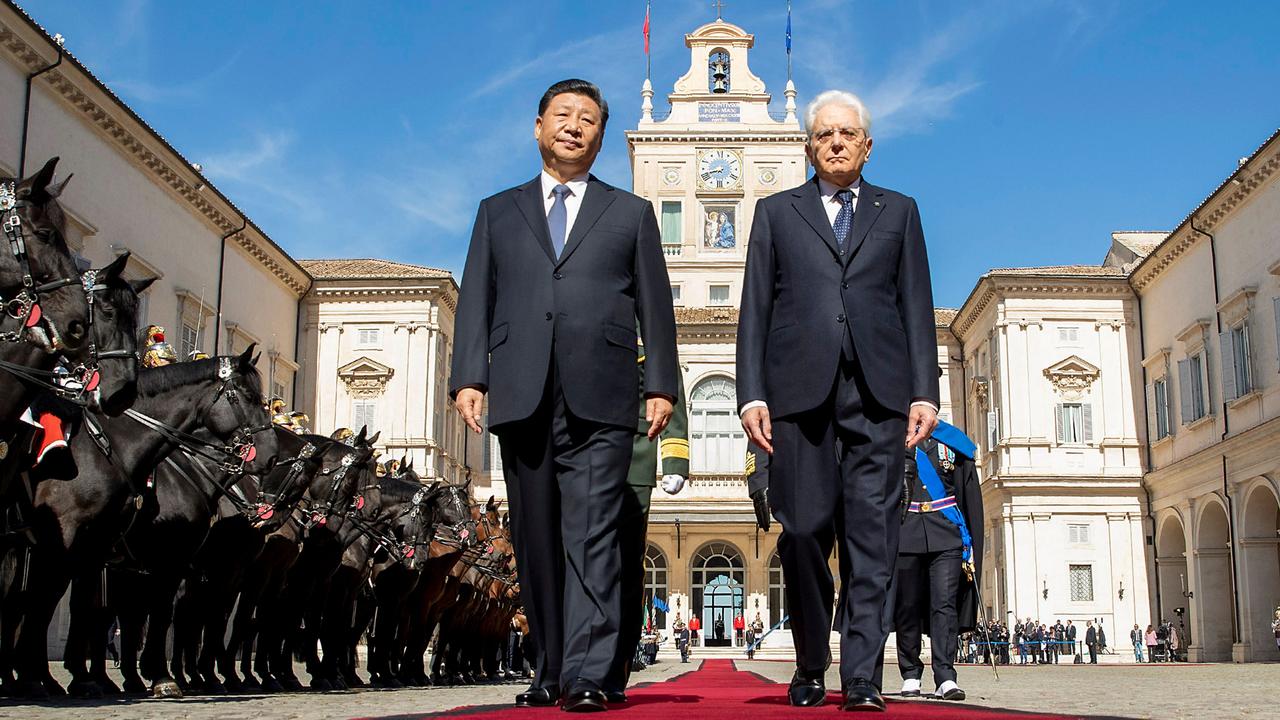China ties: We can learn a thing or two from the Kiwis
The political parties in NZ have a bipartisan approach in dealing with China. We don’t.

Is New Zealand one up on us in the increasingly fraught challenge of relating appropriately to China?
Some businesspeople with interests on both sides of the strait believe we can learn from our Kiwi cousins about building a successful relationship with Beijing.
After all, NZ concluded its free- trade agreement with China seven years before Australia. Last year, its merchandise exports to China soared 27 per cent, to $11 billion.
Wellington has indeed tended to focus on how to seek economic advantage by staying in Beijing’s good books. Its immediate response to the 2016 international arbitration castigating Beijing’s South China Sea militarisation, was one of caution, to hope that the ruling could “provide a platform for resolving the longstanding and complex issues”.
During the visit last year of Premier Li Keqiang, he and then prime minister Bill English signed a memorandum of understanding to co-operate on President Xi Jinping’s hallmark Belt and Road Initiative, which Malcolm Turnbull declined to do.
I recently spent a few days in Auckland and Wellington discussing China issues, and I failed to hear any crowing about NZ gaining some kind of lead in relating profitably with Beijing. If anything, I observed a greater intensity of interest about rapidly changing China among NZ’s most business leaders, and more readiness to learn than is common in Australia’s top corporate echelon, who too often mistake a brief red-carpet stopover for knowledge.
It’s not been plain sailing for NZ despite making closer Beijing relations a priority. It took a mighty effort to persuade China to embark on a review of the FTA, despite the document providing for it — and despite other countries gaining better deals since then, including Australia, crucially, over dairy exports.
The Belt & Road MOU has yet to yield ready results for Kiwi companies. In China as elsewhere, you have to be in it to win it, and being a firm from a signatory country may help if BRI arrangements become routine as hoped, with a single responsible agency identified and a tendering process articulated.
But the odds now seem to be trending against that happening. The BRI appears more likely to remain a strategy through which economic, networking and political targets are realised in a flexible but not truly transparent way.
At the core are two or three huge state financial institutions, enlisting consortiums of corporations with infrastructure skills to construct the projects agreed with partner states across Asia, Africa and eastern Europe.
The challenge for Kiwi and Aussie companies is how to access this process. The recently arrived Chinese ambassador to NZ, Wu Xi, said at the China Business Summit in Auckland that there was a need to turn economic opportunities into real benefits. That, despite the surging trade figures, remains true, including for Belt & Road.
And Australia’s own exports to China grew by the same amount as NZ’s in the past financial year.
Labour Prime Minister Jacinda Ardern, still at work as the due date for her first child approaches, made her first China-focused speech at that summit, warm but not effusive, carefully calibrated.
She described the China relationship as “one of our four most important, along with Australia, the US and the UK”. She pointed out that NZ’s One China policy, determining the shape of the Taiwan relationship, is “our policy” rather than Beijing’s.
She stressed the need to uphold “New Zealand values of openness, transparency and the rule of law”.
Ardern added that “naturally, there are areas where we do not see eye-to-eye with China”, inevitable with such “different histories and different political systems”. But “a strong and a mature relationship” is achievable — with differences of view raised “in a respectful way”.
She concluded that the relationship was “in great shape”, which the recent visit of veteran Foreign Minister Winston Peters to Beijing tended to confirm.
At the same time, NZ is boosting its aid budget by 30 per cent over the next four years, with most of the extra $659 million to be spent in the Pacific whose stability, Peters says, “directly affects” NZ’s, and where China is deploying considerable resources.
At home, Ardern’s government has banned the sale of existing homes to foreign buyers — with Chinese formerly dominating the market. Corporate investment continues to flow from China, though, and in larger amounts than the records show, since much of it is routed via tax-advantageous third locations such as British Virgin Islands.
Business summit speakers praised the constructive manner in which Chinese companies had taken over NZ firms. The Australian experience has largely been similarly positive. But a Kiwi expert on Chinese investment expressed concern that too many deals failed to boost productivity, replacing one owner with another rather than driving fresh output.
Similar concerns have driven debate in NZ as here, about the Chinese party-state’s influence in political parties, universities and elsewhere, while Chinese people and business involvement are widely welcomed.
Kiwi Sinologist Anne-Marie Brady has described NZ as a canary in a coalmine for other small nations that seek engagement with China without being overwhelmed. The NZ parties have largely retained a bipartisan approach to China, and to foreign policy generally. So this issue, while arousing healthy discussion, has not generated the antagonisms increasingly bitterly played out in Australia.
If New Zealand is one up on us in this challenging area, that’s it. And there’s a danger the political divide will open wider during our coming election campaign, raising temperatures all around.




To join the conversation, please log in. Don't have an account? Register
Join the conversation, you are commenting as Logout